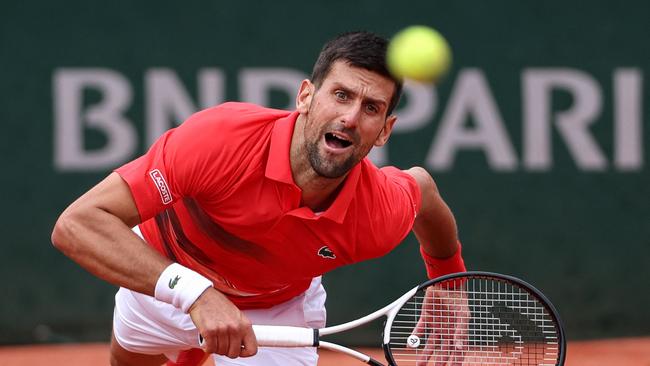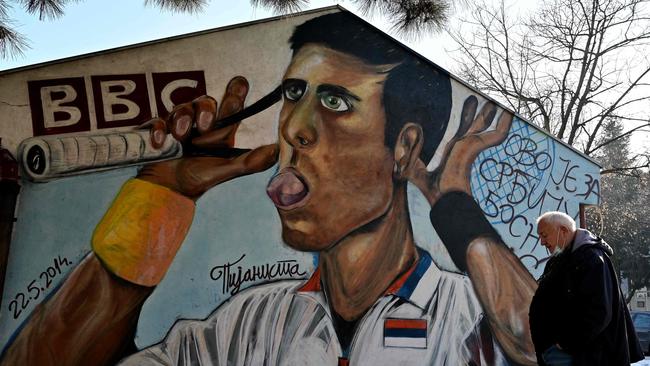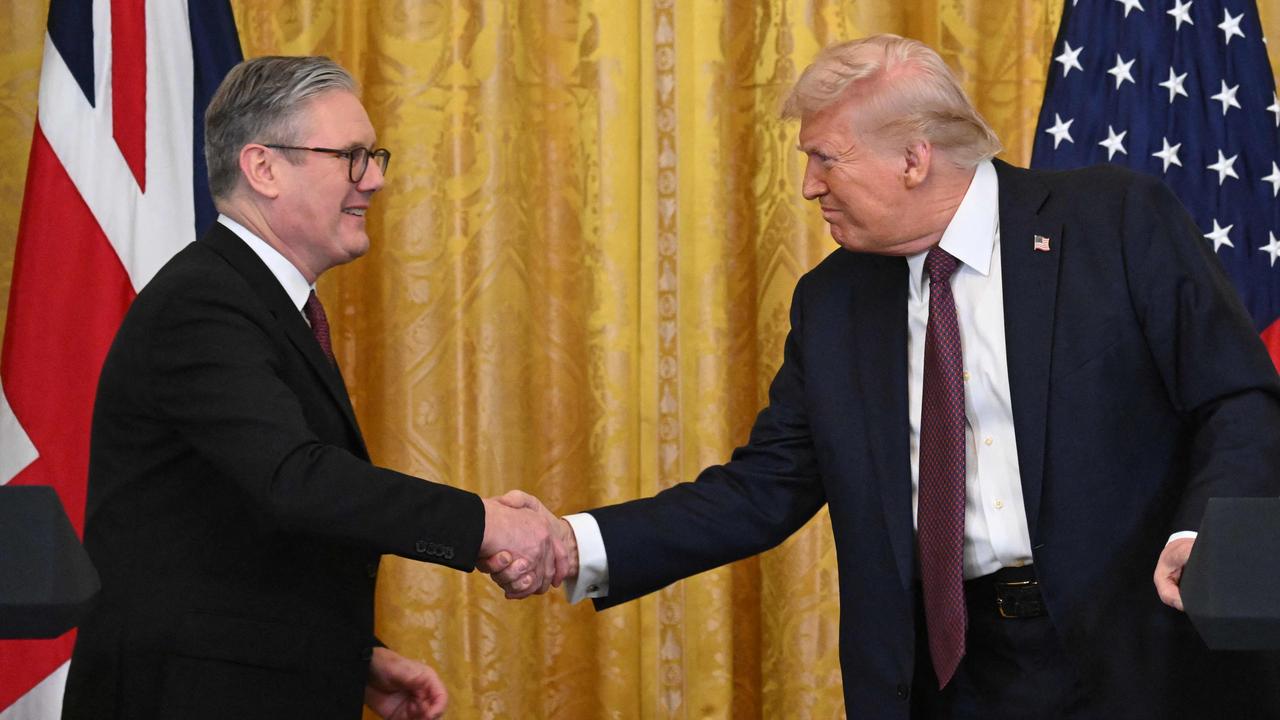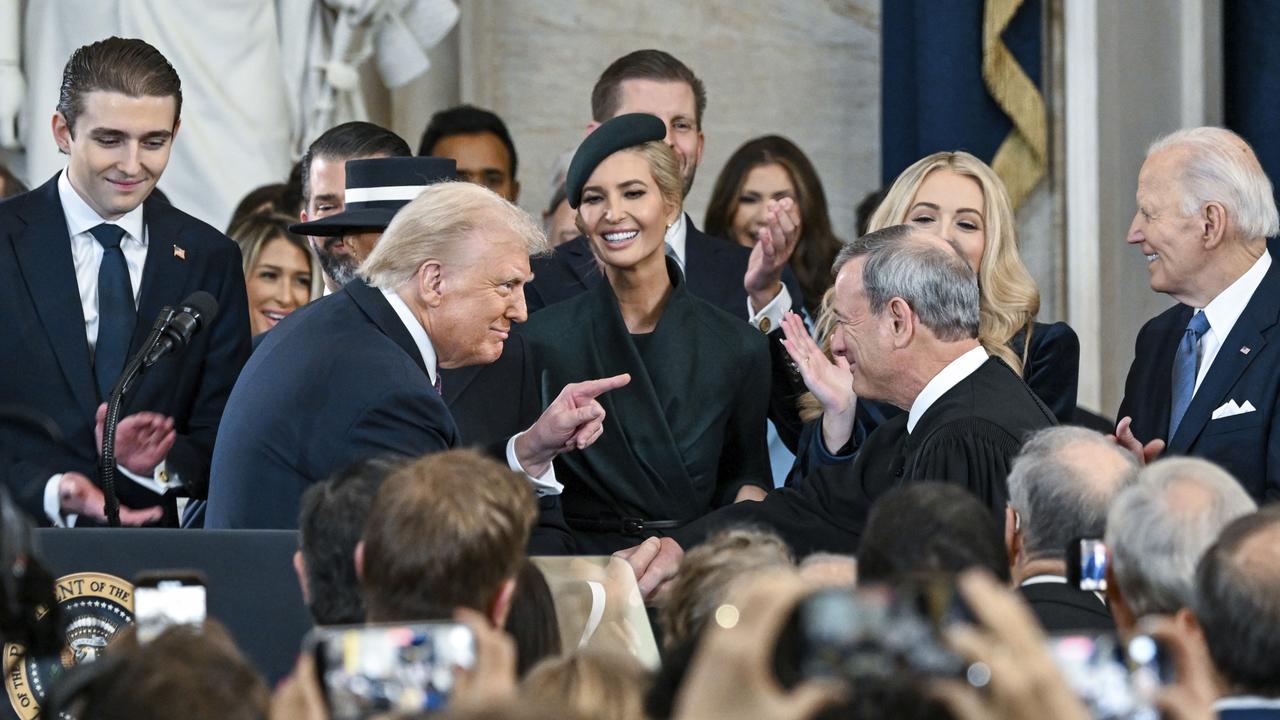Novak Djokovic is in purgatory: a master of his craft but still unloved
Why Novak Djokovic has never quite connected may say as much about humankind as it does about him. He’s likely to remain in an odd purgatory regardless of his titles, or his tennis mastery.

Novak Djokovic hits the underside of his shoes with his racket between points to knock off the residual clay dust. At times in his third-round match, it seemed as though he was slapping them to keep himself alert.
The crowd needed a nudge too. They were pleading with the flaky opposition, Aljaz Bedene of Slovenia, to lift his game. At least give us something to cheer. The high point of the affair – really, you couldn’t call it a contest – was a delicacy: Bedene’s drop shot to stay alive in the first game of the second set. Cue rapturous cheers for our man’s survival.
There have been three kinds of support here in Paris this week at Djokovic’s games. There was this kind of lame hope that Bedene may at least flex a muscle.
There was Wednesday, in the match against Alex Molcan of Slovakia, who put up a semblance of a battle. Lost in straight sets, yes, but at least he got stuck in, and the crowd were cheering him on uproariously.
And then there was Monday, against Yoshihito Nishioka, of Japan. It was a night match and presumably some of the crowd had been in the bar. Either way, everyone was a huge “Yoshi” fan. They reserved the pantomime booing for Djokovic. His aggressive fist-pump after big points was like a lightning conductor. He pumps, they boo.
The predicament of a Djokovic opponent in these knockout rounds is miserable. Bedene fell deepest in the mire; you know you can’t beat Djokovic with your regular game, so you take chances you wouldn’t normally take and go for the lines. And if you are Bedene and you are probably slightly intimidated too, you keep swinging and missing and you are suddenly handing Djokovic the match.
Bedene failed to win a point in three of the Serb’s four second-set service games, When Djokovic defended the only break point he faced all match, his reward from the stands was a sprinkling of booing.
What these crowds are actually being treated to is a masterclass. Not for a moment is Djokovic allowing his standards to slip. His range of shots, their accuracy and his athleticism are as good as this game has known. No, it isn’t the balletic elegance of Roger Federer, not the blatant awesomeness of their multiple champion, Rafael Nadal. That, of course, has always been the Djokovic impasse. Yet Roland Garros, which is presumably full of tennis lovers, still does not willingly love one of the sport’s greatest players.
He did get the fans onside at the end. He performed the familiar gesturing post-match, pointing to the skies, his heart and then all four sides of the crowd, as if he is sharing celestial love. No, the crowd aren’t impervious to this. They chuckled along on Wednesday when he was a bit jokey-flirty in his on-court interview with Marion Bartoli afterwards, telling her that he has missed her and that it’s OK for him to say that because he knows her husband is in the crowd.
These good vibes survived through to his press conference, where he said that “the crowd and this energy of people coming to watch me play is one of the biggest reasons why I keep on competing”. Like he hasn’t been listening.

I know what you’re thinking: how can I get this far into a Djokovic column without mentioning Covid, his anti-vaccination stance and the whole charade in Melbourne at the start of the year, when he was barred from competing at the Australian Open. Yet it was this way with Djokovic before the pandemic too. The French crowd are more raucous than at Wimbledon. In SW19, they tend to express antipathy by supporting the opposition. In the epic Wimbledon final against Federer in 2019, Djokovic’s reception could hardly have been frostier.
Djoko-fans – and yes, we know you’re out there – are presumably charmed by him when he shares the post-match love.
Yet even this became the subject of mockery last year, when Nick Kyrgios imitated it at the Australian Open, during the time of Covid, when the stands were empty.
Why Djokovic has never quite connected may say as much about humankind as it does about him. Wimbledon certainly didn’t fall instantly in love with Martina Navratilova. Or Ivan Lendl.
The ice, however, started to melt for those players when they had properly established themselves, certainly when their careers crept towards an end and their best days appeared to be behind them. When Djokovic experienced a glimmer of this last year, he loved it.
That was in the US Open final in September. Defeat by Daniil Medvedev and the stripping from him of his great ambition to complete the calendar grand slam – it seemed like a kind of torture. He wept in public, and that turned out to be the very moment of the melting.
His comment afterwards told a story. He may have lost the final, he said, yet he was “the happiest man alive” because of the love that he felt from the crowd.
If he arrived then at a place he had always sought – a kind of universal admiration – then he exited it almost immediately.

New York was followed by Melbourne, and that experience in Melbourne made him the most notorious anti-vaxxer on the planet.
So here we are in Paris, which is essentially the world No 1’s return to grand-slam tennis. Against Bedene, he had Arsene Wenger and Clarence Seedorf in the stand, front and second row, right above one service end. He described that as “an honour”.
He also said, afterwards, that he would definitely return to play the Australian Open next year if he was allowed back to Melbourne. “I would love to go back,” he said. “I don’t hold any grudges.” And so he goes on. Unperturbed.
No, he certainly isn’t the toast of Roland Garros, but he isn’t quite the black sheep either. People boo; people cheer. They did that before Melbourne too. Given the global controversy he caused back then, it would not have been surprising had his reception here not been a whole lot worse.
The intrigue, then, is how Wimbledon will behave. Perhaps with its nice, restrained manners, never quite letting its heart settle on one of its greatest multiple champions? And probably never quite giving full vent, either, to the broad anger felt at his position on Covid?
At a guess, that is the purgatory in which Djokovic’s career is likely to remain – however many titles he accumulates, and however great his mastery of the court.

The Times







To join the conversation, please log in. Don't have an account? Register
Join the conversation, you are commenting as Logout